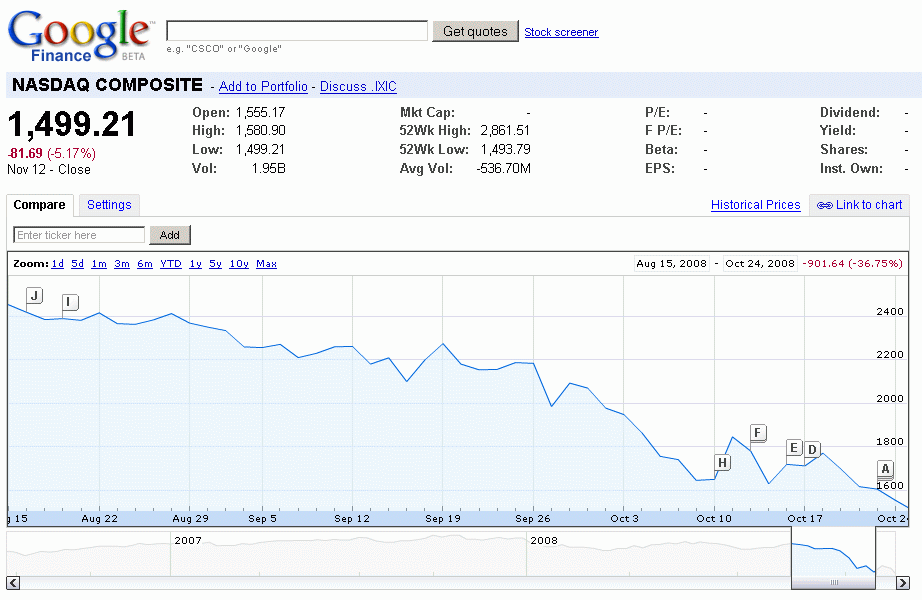Ten terrible weeks:The stock market went down hard today, but that was following a recent rally (of sorts). The really interesting tumble was that which took place in the 10 weeks from 15 August to 24 October, seen most vividly in the tech-heavy NASDAQ. It dropped 36.57% (901 points) in that short period of time. If you watched the morning shows, several financial advisors were telling people not to sell throughout that time. (If people had sold late September, they would have "only" lost 16% from the 15 August level.) Remember, by 15 August the NASDAQ had already dropped from its 21st cehtury high of 2810 (week of 2 November) to 2452, in a wobbly path where it lost 13% over ten months - during which it was becoming clear that there were serious problems in the financial area, with housing, and a likely recession for the year.

The standard-issue "buy and hold" advice, so freely offered during the market turmoil, may have added to lots of peoples' pain.
posted by Quiddity at 11/12/2008 05:12:00 PM
I know I should at least give a rat's ass but, as someone who lives from paycheck to paycheck, the stock market tanking can only affect me indirectly. Either I keep my barely-make-enough-to-live-a-lower-middle-class-lifestyle job or I don't.
Although I have thought about legally changing my name to "Chrysler" and making a trip to congress if things turn for the worst. (Yeah, I ripped that one off from NPR...)
The subprime financial crisis was triggered by the rise in oil prices in 2005, which led to the bursting of the phantom bubble of wealth and exposure of massive debt underlying financial systems. Moreover, as oil climbed to $147 a barrel in July the net result has been a deepening recession with approximately a million jobs lost in 2008, most since August. As the price of oil recedes some buyers will reenter the market and again drive up the price, repeating the cycle. This volatility and a slowing or halting of economic growth are the central indicators of the peaking of world crude oil production. In addition, with millions of Americans losing retirement and investment savings they are naturally consuming much less and some are worried about losing their jobs.
Wall Street analysts are now beginning to admit they don't know what's happening. That's because peak oil is hidden and its effects like a fractal pattern.
Wall
I